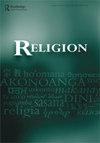Personal development and religion in the workplace in Slovakia: from life meaning to religious selves
IF 0.9
2区 哲学
0 RELIGION
引用次数: 0
Abstract
ABSTRACTA growing number of studies on religion and spirituality in the workplace point towards religious functions of work and the importance of spirituality for managing employees. Yet, religion remains a blind spot for the sociology of personal development in the workplace. Based on two years of qualitative research on Slovak employees, CEOs and other professionals, this article explores how work engagement via personal development narratives is a source of meaningfulness in the respondents’ lives to the point that their relation to work has become sacralised. Moreover, personal development at work implies the mobilisation of religious selves, either theistic or holistic. The study thus highlights the role of religion in the context of work while shedding light on transformations of religion in the capitalist context.KEYWORDS: Lived religionalternative spiritualitynew spirit of capitalismre-enchantment AcknowledgementsI am grateful for the helpful remarks from the two anonymous reviewers.Disclosure statementNo potential conflict of interest was reported by the author(s).Notes1 Alternative spiritualities include body-mind-spirit practices, New Age, paganism and theistic spiritualities (Vincett and Woodhead Citation2009).2 I avoid the dichotomy of religious and secular in my analysis following Gauthier (Citation2020). Based on the theory of social differentiation between religion and the rest of the society, the dichotomy is normative and ideological corresponding to the modern fight against religion.3 However, if spirituality does not replace the scientific concept of religion, it remains a relevant term to be taken into consideration because it is widely used (Streib and Klein Citation2016).4 This article understands work as a modern category that developed gradually from 16th and 17th centuries onwards to embrace diverse activities of production and exchange (Méda and Vendramin Citation2013: 14-17).5 Contrary to other European Union countries, the industrial sector represents 30% of the labour market (Hrnčiar and Rievajová Citation2020) while the service sector stands for 62% (Bunčák et al. Citation2013). Slovakia also suffers from a substantial brain drain (Bednárik Citation2018; Bunčák et al. Citation2013).6 A strong working identity is also encouraged by the absence of family obligations (Méda and Venramin Citation2013: 66).7 Coaching is a process of guiding people and helping them to develop their potential and skills, mostly in professional life (Salman Citation2021, 9).8 These are practices such as the transactional analysis, neuro-linguistic programming, the enneagram personality test, the Myers-Briggs Type Indicator, emotional intelligence, mindfulness and so on. Some of these practices have explicit religious origins in New Age and Buddhism (Chen Citation2022; Stevens Citation2011).9 Bratislava is the capital and the dominant centre of Slovakia. There is substantial difference between Bratislava and other parts of Slovakia in terms of educated population, economic, social and cultural development and infrastructure (Gajdoš Citation2013).10 Additional information could lead to the identification of companies. Because of the limited extend of ethnographic research, they are not necessary.11 ‘Sčítanie obyvateľov, domov a bytov Citation2021,’ Štatistický úrad Slovenskej republiky, https://www.scitanie.sk/#/. Accessed 22 June 2023.12 The minimum wage in 2021 was 623 euros. (‘STATdat Verejná databáza údajov Public database,’ Štatistický úrad Slovenskej republiky, http://statdat.statistics.sk/. Accessed 22 June 2023). Even the wage of the part-time student employee in the small company was bigger).13 Participant observation was limited to four visits in the studied working places and one online seminar participation.14 Roma population represents a large proportion of the lowest social class with unequal access to education in Slovakia (Bunčák et al. Citation2013; Gajdoš Citation2013).15 According to Wilson (Citation2014), mindfulness's roots in Buddhism can be made less overt in the process of mystification (psychologisation, scientisation, spiritualisation, whitening), but it does not mean that mindfulness meditation is not a Buddhist meditation.Additional informationFundingThis publication is an outcome of the ERC CZ project no. LL2006 (‘ReEnchEu’), funded by the Czech MŠMT.Notes on contributorsZuzana BártováZuzana Bártová is a senior lecturer of sociology at the University of Southern Bohemia in České Budějovice. She gained her PhD in the study of religion at the University of Strasbourg (2019). Her research focuses on the qualitative sociological study of contemporary Buddhism in Europe and personal development at work, including the impact of neoliberalism and consumer culture on religion and the links between religion and social class.斯洛伐克工作场所的个人发展与宗教:从生活意义到宗教自我
越来越多的关于工作场所宗教和灵性的研究指出了工作的宗教功能以及灵性对管理员工的重要性。然而,宗教仍然是工作场所个人发展社会学的盲点。基于对斯洛伐克员工、首席执行官和其他专业人士两年的定性研究,本文探讨了通过个人发展叙事的工作投入如何成为受访者生活中有意义的来源,以至于他们与工作的关系变得神圣。此外,工作中的个人发展意味着调动宗教自我,无论是有神论的还是整体的。因此,这项研究强调了宗教在工作背景下的作用,同时也揭示了宗教在资本主义背景下的转变。关键词:生活宗教另类精神资本主义新精神魅力感谢两位匿名评论者的有益评论。披露声明作者未报告潜在的利益冲突。注1替代性灵性包括身体-心灵-精神实践、新时代、异教和有神论灵性(Vincett and Woodhead citation, 2009)在Gauthier (Citation2020)之后的分析中,我避免了宗教和世俗的二分法。基于宗教与社会其他部分的社会区分理论,这种二分法是规范的、意识形态的,与现代反宗教斗争相对应然而,如果灵性没有取代宗教的科学概念,它仍然是一个值得考虑的相关术语,因为它被广泛使用(Streib和Klein Citation2016)这篇文章将工作理解为一个现代的类别,从16世纪和17世纪开始逐渐发展到包括各种生产和交换活动(m达和文德拉明引文2013:14-17)与其他欧盟国家相反,工业部门占劳动力市场的30% (hrniar和rievajovcitation2020),而服务业占62% (Bunčák等)。Citation2013)。斯洛伐克也面临着严重的人才流失(Bednárik Citation2018;Bunčák等。Citation2013)。6不承担家庭责任也会鼓励强烈的工作认同感(msameda和Venramin Citation2013: 66)教练是一个指导人们并帮助他们发展潜力和技能的过程,主要是在职业生活中(Salman Citation2021, 9)这些实践包括交易分析,神经语言编程,九型人格测试,迈尔斯-布里格斯类型指标,情商,正念等等。其中一些做法在新世纪和佛教中有明确的宗教渊源(Chen Citation2022;史蒂文斯Citation2011)。9布拉迪斯拉发是斯洛伐克的首都和主要中心。在受过教育的人口,经济,社会和文化发展以及基础设施方面,布拉迪斯拉发与斯洛伐克其他地区之间存在实质性差异(gajdoshi Citation2013)更多的信息可能导致公司的识别。由于民族志研究的范围有限,它们是不必要的。11 ' Sčítanie obyvateľov, domov a bytov Citation2021, ' Štatistický úrad斯洛文尼亚共和国,https://www.scitanie.sk/#/。2021年最低工资为623欧元。(STATdat verejn.com databáza údajov公共数据库Štatistický úrad Slovenskej republic, http://statdat.statistics.sk/。2023年6月22日访问)。即使是小公司的兼职学生雇员的工资也更高参与者观察仅限于在研究的工作场所进行四次访问和一次在线研讨会参与罗姆人在斯洛伐克受教育机会不平等的最低社会阶层中占很大比例(Bunčák等)。Citation2013;GajdošCitation2013)含量根据Wilson (Citation2014)的说法,正念在佛教中的根源可以在神秘化(心理化,科学化,精神化,美白)的过程中变得不那么明显,但这并不意味着正念冥想不是佛教冥想。本出版物是ERC CZ项目的成果。LL2006 (' ReEnchEu '),由捷克MŠMT资助。作者简介zuzana BártováZuzana Bártová是位于České budrejovice的南波西米亚大学的社会学高级讲师。她于2019年在斯特拉斯堡大学获得宗教研究博士学位。她的研究主要集中在当代欧洲佛教的定性社会学研究和工作中的个人发展,包括新自由主义和消费文化对宗教的影响以及宗教与社会阶层之间的联系。
本文章由计算机程序翻译,如有差异,请以英文原文为准。
求助全文
约1分钟内获得全文
求助全文
来源期刊

RELIGION
RELIGION-
CiteScore
2.70
自引率
0.00%
发文量
58
期刊介绍:
RELIGION is an internationally recognized peer-reviewed journal, publishing original scholarly research in the comparative and interdisciplinary study of religion. It is published four times annually: two regular issues; and two special issues (or forums) on focused topics, generally under the direction of guest editors. RELIGION is committed to the publication of significant, novel research, review symposia and responses, and survey articles of specific fields and national contributions to scholarship. In addition, the journal includes book reviews and discussions of important venues for the publication of scholarly work in the study of religion.
 求助内容:
求助内容: 应助结果提醒方式:
应助结果提醒方式:


